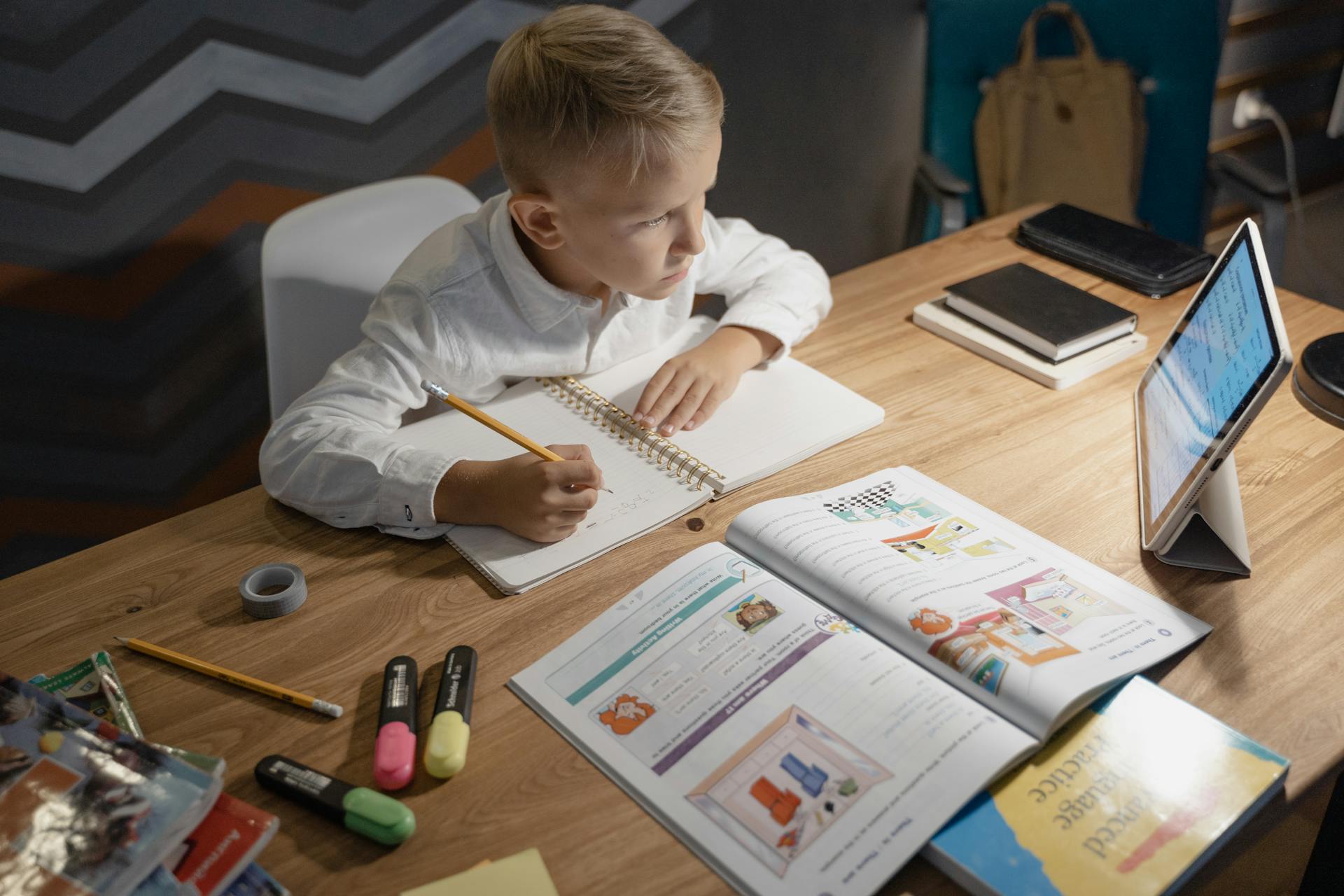In today’s digital age, technology has become an integral part of our daily lives. From smartphones to tablets and educational software, tech tools have found their way into the lives of children, reshaping how they learn, play, and interact with the world. This article delves into the ways in which technology is revolutionizing kids’ daily schedules, exploring the positive impacts, potential challenges, and the importance of responsible tech usage. Children today are growing up in a world vastly different from that of previous generations. Technology has infiltrated every aspect of their lives, influencing how they learn, communicate, and entertain themselves. This article explores the transformative impact of tech tools on kids’ daily schedules, shedding light on the advantages and challenges associated with this digital revolution.
The Rise of Educational Apps
One of the most significant changes in recent years has been the proliferation of educational apps. These apps cater to various age groups and cover subjects ranging from mathematics and science to language and art. They offer an engaging and interactive way for kids to acquire knowledge and skills, often making learning feel like play.
Digital Learning: Beyond the Classroom
Tech tools have extended the classroom beyond the school walls. Online learning platforms, video tutorials, and virtual field trips provide children with access to a wealth of information and experiences that were once confined to textbooks. This flexibility allows kids to explore their interests and passions more extensively without making any negative impact on their daily schedules.
Interactive Learning through Gamification
Gamification is a powerful method of engaging kids in learning activities. Educational games and quizzes make learning fun and interactive, motivating children to actively participate in their education. This approach not only enhances their understanding of subjects but also fosters a love for learning.
Tech-Assisted Homework and Study Sessions
Homework and study sessions have evolved with the aid of technology. Online research, digital textbooks, and study apps help kids organize their work more efficiently. Collaboration tools also enable students to work together on projects, promoting teamwork and problem-solving skills.
Cultivating Financial Responsibility
These financial tools are designed to provide a controlled and educational approach to money for young individuals. When it comes to managing financial literacy and teaching responsible money management skills to children, the use of kids’ debit cards has gained immense popularity. Parents can load a predetermined amount onto the card, allowing kids to make purchases within the limits set by their guardians. The best kids’ debit cards not only offer this fundamental feature but also include user-friendly apps for parents to monitor spending, set allowances, and track their child’s financial progress. These cards provide a valuable hands-on experience for children to learn about budgeting and responsible spending in today’s increasingly cashless society.
Balancing Screen Time
While technology offers numerous benefits, it’s crucial to strike a balance. Excessive screen time can lead to health issues and hinder social development. Parents play a vital role in setting limits and encouraging physical activities and face-to-face interactions.
Social Media and Kids
Social media platforms are increasingly popular among kids, offering a way to connect with friends and express themselves. However, responsible usage and awareness of online risks are essential. Parents and educators must educate children about digital etiquette and online personal safety app.
Enhancing Creativity with Digital Tools
Tech tools also nurture creativity. Kids can explore their artistic talents through digital art software, music composition apps, and video editing tools. These platforms empower them to express themselves and develop new skills.
Tech Tools for Physical Fitness
Physical fitness should not be neglected in the digital age. Wearable fitness trackers, exercise apps, and online yoga classes encourage kids to stay active and maintain a healthy lifestyle.
Parental Control and Monitoring
To ensure responsible tech usage, parents can utilize parental control software to monitor and manage their children’s online activities. These tools provide peace of mind while allowing kids to explore the digital world safely.
Digital Safety and Privacy
Understanding digital safety and privacy is crucial. Kids should be educated about the importance of secure passwords, online etiquette, and the potential consequences of sharing personal information online.

Building Critical Thinking Skills
Tech tools can also enhance critical thinking skills. Educational games and puzzles challenge kids to think critically, solve problems, and make decisions—a valuable skill set for their future.
The Role of Teachers and Parents
Teachers and parents must collaborate to maximize the benefits of tech tools. Effective communication and shared goals can ensure that children receive a balanced and well-rounded education, both in and out of the classroom. At the same time, schools must prioritize student safety by implementing proactive measures, such as school safety apps, to create a secure and supportive learning environment. By working together, educators and parents can leverage technology to not only enrich learning experiences but also to safeguard the well-being of every student.
As technology continues to advance, its role in children’s lives will evolve. The future promises even more innovative and personalized learning experiences, transforming how kids interact with the digital world.
Augmented and Virtual Reality in Learning
Augmented Reality (AR) and Virtual Reality (VR) are no longer just for gaming. Educational institutions are leveraging these technologies to create immersive learning experiences. Imagine a history lesson where students can virtually walk through ancient civilizations or a biology class where they can explore the human body from the inside. These technologies make abstract concepts tangible, enhancing comprehension and retention.
Empathy and Global Connections
Technology has also bridged geographical barriers. Through virtual exchange programs, students can connect with peers from different parts of the world. This fosters cultural understanding, empathy, and global awareness. In a world that’s increasingly interconnected, such experiences prepare children to be global citizens.
Eco-Friendly Tech Initiatives
As environmental concerns grow, tech tools are also playing a role in promoting sustainability. Apps that teach kids about recycling, conservation games, and platforms that track carbon footprints are making children more eco-conscious. By intertwining technology with environmental education, we’re nurturing a generation that values and protects our planet.
Conclusion
Technology is undeniably revolutionizing kids’ daily schedules. When used responsibly and in moderation, tech tools can open up new horizons for learning, creativity, and personal growth. It’s essential for parents, educators, and society as a whole to guide children in navigating the digital landscape safely and effectively.

Andrej Fedek is the creator and the one-person owner of two blogs: InterCool Studio and CareersMomentum. As an experienced marketer, he is driven by turning leads into customers with White Hat SEO techniques. Besides being a boss, he is a real team player with a great sense of equality.
